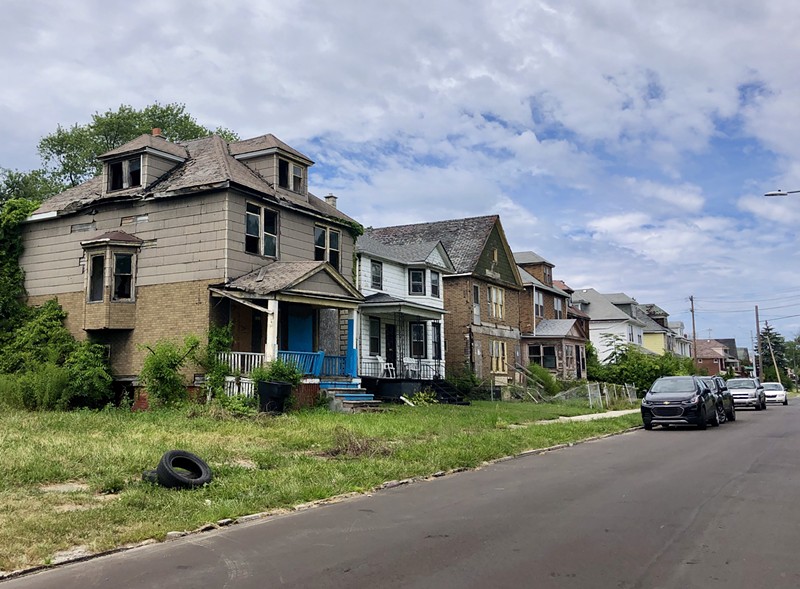The Detroit Land Bank Authority has introduced a new program for developers to bid on occupied homes in bundles of three, a move that housing advocates say will displace more longtime residents.
The Occupied Sales Bundle program proposal, still in its pilot phase, allows developers to bid on bundles of occupied homes, all in close proximity to each other, that failed to sell at the Wayne County Tax Auction.
Developers are required to renovate the properties to satisfy city building codes, and then are encouraged to either offer to sell or rent the homes back to the occupants, or “lawfully remove ineligible occupants and replace them with eligible occupants.”
Alysse Miller, a program manager with the Land Bank, says the purpose of the program is to get homes back on the tax rolls.
“We still continue to have occupied inventory, so this is the next approach to selling that inventory,” she told Curbed.
“We do want to encourage entities to keep occupants if possible. We can work with them to determine what’s the best method, whether that’s cash sale, land contract, or renting.”
Alyssa Strickland, public information officer for the Detroit Land Bank, tells Metro Times that the program offers incentives if buyers are able to keep occupants in their homes.
“There is a 50% discount on the promissory note if the same occupant is kept,” Strickland says. “A discount will be applied to the final purchase price.”
But there’s no requirement for the new landlord to keep occupants in the home, raising concerns among housing advocates in the city.
“The person who lives in the home is likely to be the one who cares about it,” Michele Oberholtzer, director of the Tax Foreclosure Prevention Project at United Community Housing Coalition, told Curbed. “And if they have homeownership interest, then the interest of the occupant can align with the interest of the home.”
“I think it’s possibly a deferment of responsibility by the Land Bank,” says Oberholtzer. “It’s them saying, ‘Will someone else evict these people for us? Will someone else deal with it?’”
Editors note: This story has been updated to include a quote from Alyssa Strickland, the public information officer for the Detroit Land Bank.






